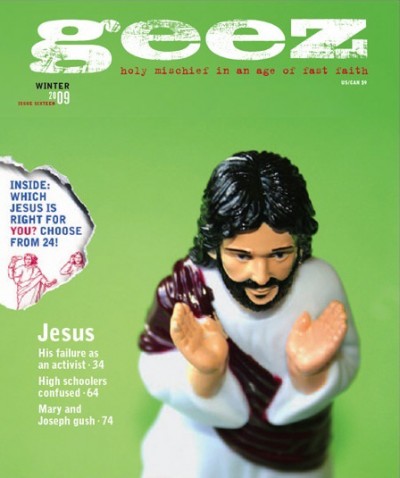Ready or not, Michael Moore is back
His new film, Capitalism: A Love Story, opens with security camera footage of bank robberies, guys with masks and guns jumping over the counter filling bags with cash. Moore’s entertaining and infuriating two-hour argument is that capitalism is robbery but on a spectacular scale. Capitalism, he says, is “a system of taking and giving. Mostly taking.” According to Moore, the richest one percent in America have more wealth than the poorest 95 percent combined. America, he says, is a capitalist society before it is a democracy.
His new film, Capitalism: A Love Story, opens with security camera footage of bank robberies, guys with masks and guns jumping over the counter filling bags with cash. Moore’s entertaining and infuriating two-hour argument is that capitalism is robbery but on a spectacular scale. Capitalism, he says, is “a system of taking and giving. Mostly taking.” According to Moore, the richest one percent in America have more wealth than the poorest 95 percent combined. America, he says, is a capitalist society before it is a democracy.
He covers an awful lot of ground in a hurry: 20th century American capitalism, the post-WWII economic boom, the evolution of government policy, the blurry line between politicians and big business, the opacity of the language on Wall Street. Along the way he mentions lots of now infamous names, the beneficiaries of George W. Bush’s eleventh hour $700 billion bailout – Lehman Brothers, Goldman Sachs, AIG, Merrill Lynch. He’s leading us up to the how and why of the current recession which, in short, comes down to this: deregulation. Since the 1980s, the US government has steadily removed the legal obstacles for the bankers and financial bigwigs to become unbelievably rich by devising increasingly elaborate schemes to gamble investors’ money. The big financial crash last year was like a dam breaking – it looks like it happens before our eyes, but there’s been a seeping crack there for years, slowly dissolving the wall that holds back the flood.
Capitalism and Christianity seem to go hand-in-hand in the United States: there’s footage of politicians and bankers speaking of capitalism as “blessed by God,” and “miraculous. But Moore says, wait a second: how do we reconcile the “the profit motive” (i.e. greed) with Jesus’ command to love “the least of these.” When he asks a few priests for their thoughts on capitalism, they describe it as unjust, immoral, obscene, outrageous, sinful, and evil. Blessed by God? Not so much.
The movie really only talks about America – Moore leaves out the billions of people who suffer the most from the injustices of global capitalism. But Moore clearly sees himself as a defender of democracy and middle-class America. He’s good at the microcosmic look at the fallout from capitalism, men and women genuinely suffering from the injustice of capitalism. We see families being evicted from their homes, kids who have been locked up in a private, for-profit prison, laid off (and pissed off) factory workers, and tearful men and women dealing with the death of their spouses while their employers, Wal-Mart for example, benefit from life insurance policies taken out on employees. He’s pushing our buttons, but he’s showing how the high-stakes gambling of the super rich play out for the little guy. White-collar crime has its victims, alright.
If you don’t like Michael Moore, this movie probably won’t change your mind. His bias is overt – he’s taking on capitalism, for pete’s sake. Stylistically, it’s like his other movies: tongue-in-cheek vintage film montages of “the good old days,” Moore’s bedtime-storyteller-voice narration, his familiar big goofy stunts down at Wall Street that make the security guards roll their eyes. His theory and history of capitalism are oversimplified, but heck, it’s a movie. Moore is a storyteller and an entertainer. He wants people to enjoy themselves, to laugh, to think about things they haven’t thought of before, maybe to learn something, but to leave the theatre thinking, that was a good way to spend the last two hours.
It’s very encouraging to see a deep, fundamental argument against capitalism in mainstream cinema. I suppose there’s a danger that people like me – educated, middle class, armchair critic, sentimentally left-leaning – will watch this movie and think that, because we’ve seen it, we’ve actually done something significant. But that’s hardly Moore’s fault. Let’s hope he keeps up the holy mischief.



Sorry, comments are closed.